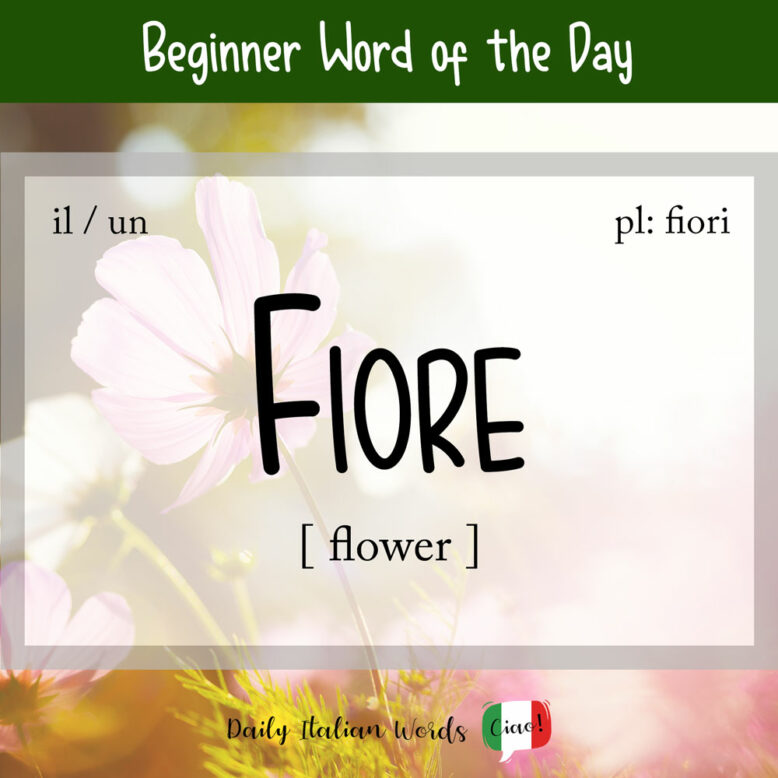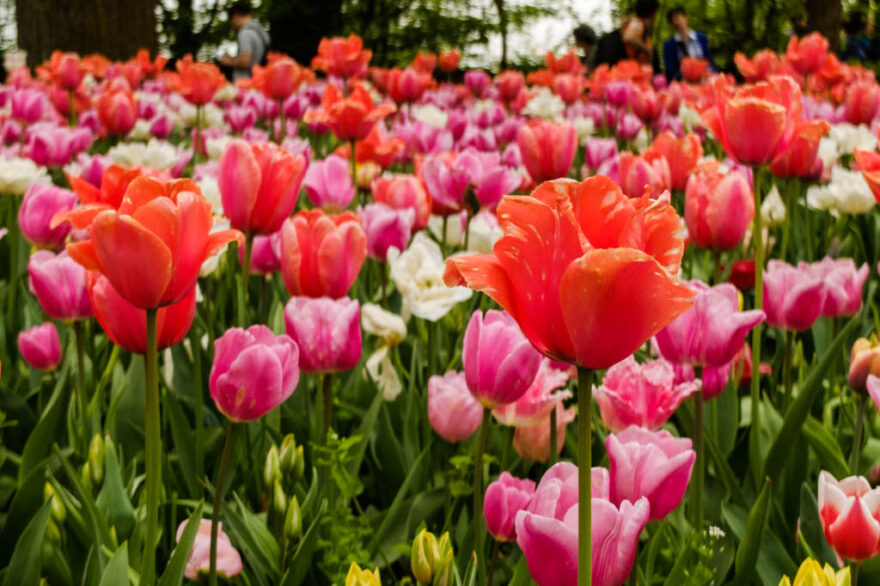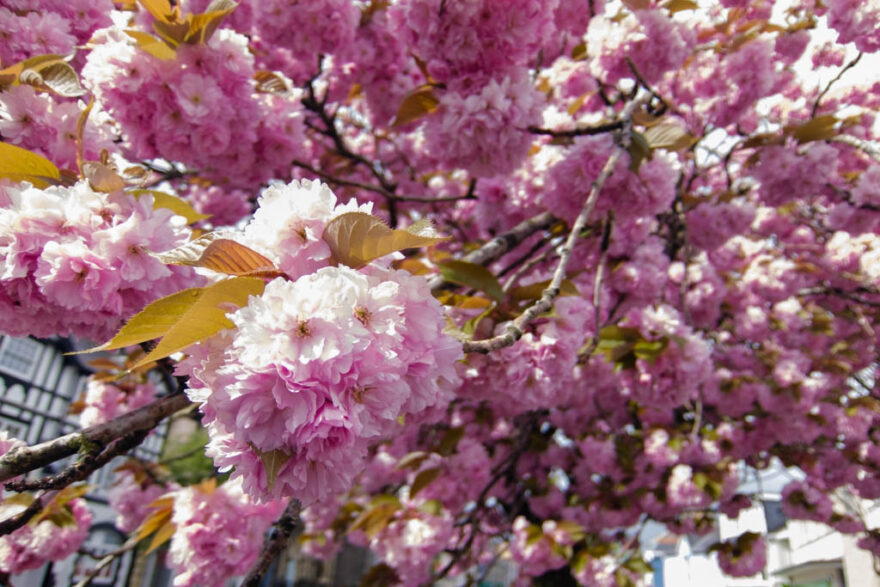The Italian word for flower is fiore (plural: fiori). This word can also be used to refer to a blossom of a tree. It is a fairly popular name for a girl or boy in Italy.

il fiore
un fiore
i fiori
dei fiori
Hai visto quanti bei fiori ci sono sul balcone?
Have you seen how many beautiful flowers there are on the balcony?

In English, you can say that someone is in the flower of their youth to mean that they are enjoying the best years of their life. Usefully you can use the same expression in Italian, not only with youth (giovinezza) but also with other words such as years (anni), age (età) and health (salute).
Il ragazzo è morto nel fiore dell’età.
The boy died in the prime of his life.
There are other expressions containing the noun fiore that refer to youth, such as:
- Primo fiore = first sign of facial hair on young men (lit. first flower)
- Perdere il proprio fiore = to lose your virginity (lit. to lose your own flower)
Although the French expression la crème de la crème exists in Italian, there is another alternative that includes the word fiore which is fior fiore di.
Il Duomo è il fior fiore di Firenze.
The Duomo is the very best Florence has to offer.
A similar expression is fiore all’occhiello which refers to someone or something that is a source of pride for the speaker.
I nostri bambini sono il nostro fiore all’occhiello.
Our children are our pride and joy.
You can use fiore to describe a person who’s beautiful and delicate. The expression tutte rose e fiori (all roses and flowers) indicates that everything is fine and positive. You can also use it in a negative sense to remind someone that not everything is going according to plan.
- Quella ragazza è un fiore = That girl is so nice
- Non è tutto rose e fiori = It’s not all a bed of roses
The word fiore is also contained within the verb fiorire which means to flower, blossom or bloom. The past participle fiorito means in bloom or flowering.
È bello vedere gli alberi fioriti in primavera.
It’s nice to see the flowering trees in spring.

Used in a figurative sense, the adjective fiorente can mean flourishing or thriving and often refers to businesses, periods of time, or people.
Abitiamo in un paesino fiorente con il suo mercato.
We live in a thriving town with its own market.
A related noun is fioritura which literally means flowering or blooming but can also mean expansion, growth or embellishment in a figurative sense.
Non amo la calligrafia con troppe fioriture o elementi decorativi.
I don’t like calligraphy with too many embellishments or decorative elements.
Fiore can be used to describe something superficial, or external, often in a metaphorical sense:
- dire qualcosa a fior di labbra = to whisper something (lit. to say something at the surface of the lips)
- avere i nervi a fior di pelle = to be oversensitive, to get nervous / irritated easily (lit. to have the nerves at the surface of the skin)
Finally, the word fioraio is – as you may have guessed – the word for florist in Italian.
Heather Broster is a graduate with honours in linguistics from the University of Western Ontario. She is an aspiring polyglot, proficient in English and Italian, as well as Japanese, Welsh, and French to varying degrees of fluency. Originally from Toronto, Heather has resided in various countries, notably Italy for a period of six years. Her primary focus lies in the fields of language acquisition, education, and bilingual instruction.


